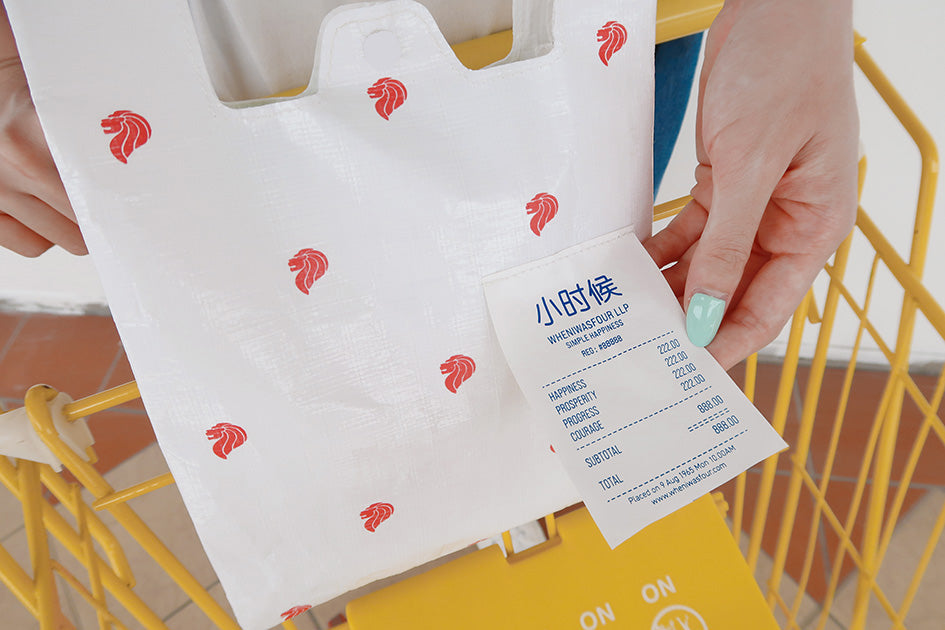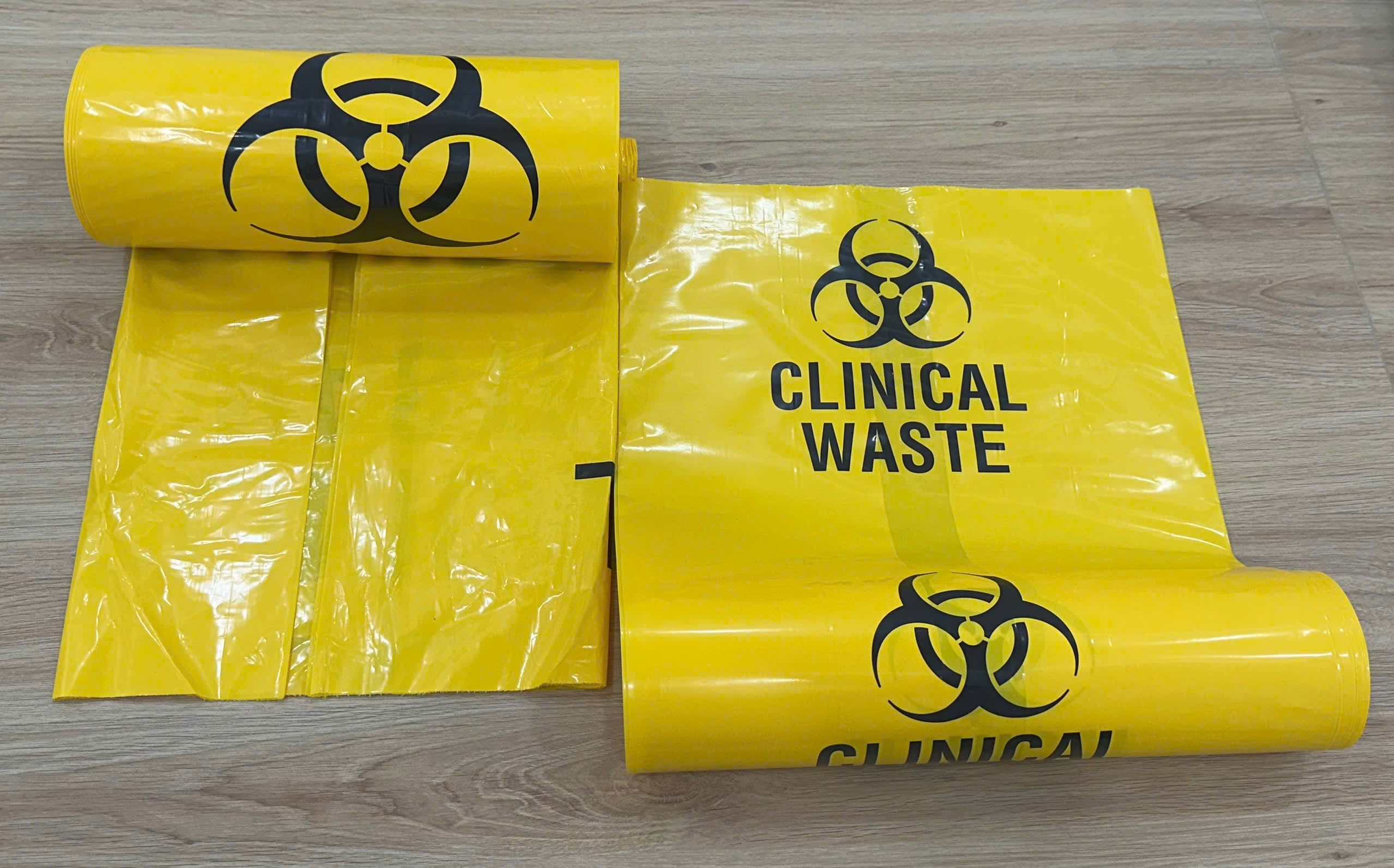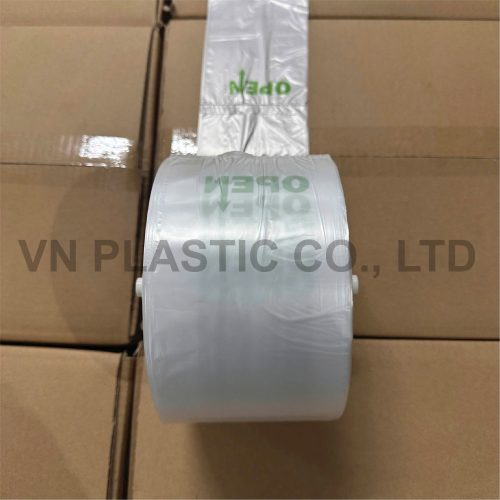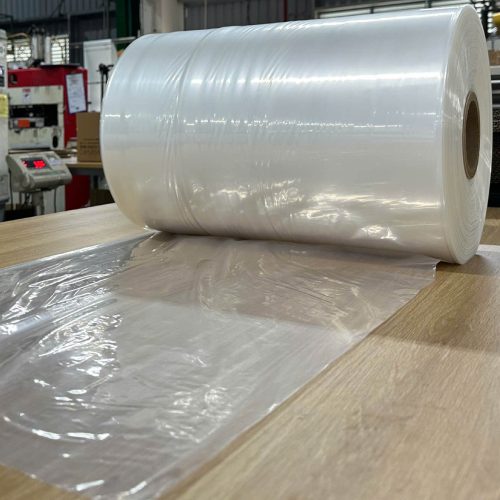Plastic bag manufacturers play a vital role in today’s society by providing essential products that support convenience and functionality across various industries. As the demand for plastic bags grows, it raises questions about sustainability, innovation, and the future of this ubiquitous item.
Who Are Plastic Bag Manufacturers?

Understanding who plastic bag manufacturers are involves exploring their industry roles, production processes, and the variety of products they offer. These manufacturers work tirelessly to create a range of plastic bags used in different sectors such as retail, food service, healthcare, and more.
Role in the Industry
Plastic bag manufacturers are the backbone of supply chains that rely on efficient packaging solutions. They engage in the production, distribution, and sometimes recycling of plastic bags. The main role includes:
- Producing Various Bag Types: Manufacturers produce numerous types of plastic bags, including shopping bags, trash bags, and specialized bags for medical purposes.
- Supply Chain Management: They manage logistics to ensure timely delivery of products to retailers, fulfilling consumer needs efficiently.
- Innovation: Continuous research and development lead to the introduction of biodegradable and recyclable bags, showcasing their commitment to evolving market demands.
Production Processes
Delving into their production processes reveals the intricate steps involved in creating plastic bags:
- Material Selection: Manufacturers choose suitable polymers like polyethylene and polypropylene based on desired properties such as durability and flexibility.
- Extrusion: The process begins with melting resin pellets and forming them into continuous sheets or tubes using extrusion machines.
- Bag Formation: After forming the sheets, additional processes include cutting, sealing, and printing, resulting in finished bags ready for distribution.
Product Variety
The versatility of plastic bags is evident in the range manufacturers provide:
- Grocery Bags: Commonly used in retail settings, these bags must be sturdy enough for carrying groceries while being visually appealing.
- Trash Bags: Designed to hold waste securely, these bags are manufactured in various sizes and thicknesses to accommodate different waste management needs.
- Specialty Bags: Healthcare industries often require specific bags designed for biohazard disposal, showcasing the specialized capabilities of manufacturers.
How Do Plastic Bag Manufacturers Operate?

Understanding how plastic bag manufacturers operate requires a look into their business models, production techniques, and customer engagement practices. This knowledge highlights the complexities behind seemingly simple products.
Business Models
Manufacturers often adopt diverse business models to cater to their target markets effectively:
- B2B vs. B2C: Some manufacturers focus solely on business-to-business sales, supplying large retailers, while others also sell directly to consumers, offering branded products.
- Customization Options: Many manufacturers provide customization services, allowing businesses to print logos and design unique bags, enhancing brand visibility.
- Sustainability Initiatives: A growing number of manufacturers are shifting towards eco-friendly practices, producing biodegradable bags or participating in recycling programs.
Innovative Technologies
Technological advancements have significantly impacted the operations of plastic bag manufacturers:
- Automation: Automated production lines enhance efficiency, reduce labor costs, and increase output rates, meeting high demand without sacrificing quality.
- Quality Control: Manufacturers employ rigorous testing methods to ensure product durability, safety, and compliance with regulations before distribution.
- Smart Manufacturing: Incorporating IoT and AI technologies can optimize production schedules, reduce waste, and improve inventory management, contributing to overall operational efficiency.
Customer Engagement
Engagement strategies form an essential aspect of how manufacturers connect with their customers:
- Market Research: Understanding consumer preferences and trends helps manufacturers tailor products to meet changing demands.
- Feedback Mechanisms: Manufacturers often incorporate customer feedback into their processes to improve product development and customer satisfaction.
- Education: Many companies provide information on the proper use of their bags, promoting responsible plastic use and disposal.
Pros and Cons of Plastic Bag Manufacturing
Exploring the pros and cons of plastic bag manufacturing reveals the advantages and drawbacks associated with this essential industry. Understanding these factors can help assess its impact on our environment and economy.
Advantages
Examining the positive aspects of plastic bag manufacturing provides insight into its significance:
- Cost-Effectiveness: Producing plastic bags is relatively inexpensive compared to alternatives, making them accessible for various applications and consumers.
- Durability and Versatility: Plastic bags can withstand various conditions, making them ideal for both light and heavy-duty tasks. Their adaptability allows them to serve multiple purposes across industries.
- Convenience: Lightweight and easy to transport, plastic bags provide unparalleled convenience, especially in retail and food industries where quick service is essential.
Disadvantages
Despite their benefits, there are notable disadvantages associated with plastic bag manufacturing:
- Environmental Impact: The production and disposal of plastic bags contribute to environmental pollution, particularly in oceans and landfills, leading to significant ecological consequences.
- Resource Consumption: Manufacturing plastic bags requires considerable energy and petroleum-based resources, raising concerns about depleting natural resources.
- Regulatory Challenges: Many regions are implementing bans or restrictions on single-use plastics, posing challenges for manufacturers and pushing them to adapt their products.
Balancing the Trade-Offs
Acknowledging both the advantages and disadvantages encourages a balanced approach to plastic bag production:
- Innovative Solutions: Manufacturers are increasingly focusing on biodegradable options and implementing recycling programs to mitigate some negative impacts.
- Policy Influence: Engaging with policymakers to develop sustainable practices can help align the industry with environmental goals while preserving economic viability.
- Consumer Awareness: Educating consumers about responsible usage and disposal can promote better practices surrounding plastic bag consumption.
Alternatives to Plastic Bags
As awareness of the environmental impact of plastic bags grows, exploring alternatives becomes essential. Various options exist that may provide similar functionality without contributing to pollution.
Reusable Bags
Reusable bags have gained popularity as a practical alternative:
- Material Options: Manufactured from cotton, jute, or recycled materials, reusable bags are designed for long-term use and can significantly reduce plastic waste.
- Durability: Unlike single-use plastic bags, reusable bags are built to last, often withstanding the rigors of frequent use.
- Variety of Designs: Available in numerous styles and colors, reusable bags can also be customized, providing a fashionable and eco-friendly option.
Paper Bags
Paper bags present another alternative to plastic:
- Biodegradability: Unlike plastic, paper bags break down naturally, reducing their long-term environmental impact.
- Recyclability: Most paper bags are recyclable, providing an avenue for sustainable waste management.
- Strength: While generally not as strong as plastic, many paper bags are reinforced to carry substantial weight.
Compostable Bags
Compostable bags are engineered to biodegrade effectively in a composting environment:
- Material Composition: Made from plant-based materials, these bags break down into natural components, enriching soil rather than polluting the environment.
- Specific Conditions Needed: It’s important to note that these bags often require commercial composting facilities for optimal decomposition.
- Consumer Education: Encouraging consumers to understand the difference between compostable and conventional plastics can promote environmentally responsible choices.
Step-by-Step Guide to Choosing the Right Plastic Bag Manufacturer
When selecting a plastic bag manufacturer, several considerations come into play. Following a systematic approach ensures you make informed decisions that align with your requirements.
Identify Your Needs
Before initiating contact with potential manufacturers, clarify your specific needs:
- Product Type: Determine the type of plastic bags you require – grocery bags, trash bags, or specialty bags.
- Volume Requirements: Assess your expected order size, as some manufacturers specialize in low-volume custom orders while others cater to bulk production.
- Customizations: Decide if you need any design features, such as printed logos or specific dimensions.
Research Potential Manufacturers
Once you’ve identified your needs, conduct thorough research on potential candidates:
- Industry Reputation: Evaluate the manufacturer’s reputation within the industry, looking for reviews and testimonials from previous clients.
- Certifications: Check for relevant certifications that demonstrate compliance with safety and environmental regulations.
- Production Capabilities: Ensure the manufacturer has the necessary equipment and technology to meet your production needs.
Contact and Evaluate
After narrowing down your options, reach out to selected manufacturers for further evaluation:
- Request Samples: Ask for product samples to assess quality firsthand and verify that they meet your specifications.
- Discuss Lead Times: Clarify production timelines and delivery schedules to ensure they align with your project deadlines.
- Negotiate Pricing: Engage in discussions regarding pricing structures and payment terms to find a mutually beneficial agreement.
Tips for Working with Plastic Bag Manufacturers
Building a successful working relationship with plastic bag manufacturers requires clear communication and collaboration. Here are some tips to foster effective partnerships:
Establish Clear Communication
Open lines of communication are crucial:
- Define Expectations: Clearly articulate your needs and expectations from the outset to avoid misunderstandings.
- Regular Updates: Maintain regular check-ins throughout the production process to stay informed about progress and address any issues promptly.
- Encourage Feedback: Foster an environment of open dialogue where both parties feel comfortable sharing insights and suggestions.
Build Trusting Relationships
Trust is the foundation of any successful partnership:
- Consistency: Work with manufacturers consistently over time to build rapport and establish a reliable working relationship.
- Mutual Respect: Treat manufacturers as partners rather than just suppliers, recognizing their expertise and insights.
- Long-Term Focus: Consider the long-term implications of your partnership, emphasizing sustainability and shared values.
Stay Informed About Industry Trends
Keeping abreast of industry developments can benefit your relationship with manufacturers:
- Attend Trade Shows: Participate in industry events to network with manufacturers and gain insights into emerging trends.
- Research Innovations: Stay updated on new technologies and materials that could enhance your product offerings.
- Collaborate on Sustainability Initiatives: Explore opportunities to work together on environmentally friendly practices or product lines.
FAQs
What types of plastic bags do manufacturers produce?
Plastic bag manufacturers produce a wide range of bags, including grocery bags, trash bags, retail bags, and specialty bags for medical or industrial use.
Are there sustainable options provided by plastic bag manufacturers?
Yes, many manufacturers now offer sustainable alternatives such as biodegradable and recyclable bags, reflecting a commitment to environmental responsibility.
How do I choose the right plastic bag manufacturer for my needs?
Identify your specific requirements, conduct research on potential manufacturers, request samples, discuss lead times, and negotiate pricing to find the best fit.
What are the primary environmental concerns related to plastic bags?
The main concerns involve pollution, resource depletion during production, and the long degradation time of traditional plastic bags in landfills and oceans.
Can I customize my plastic bags through manufacturers?
Absolutely! Many plastic bag manufacturers provide customization options, enabling businesses to add logos, designs, and specify bag dimensions to enhance branding.
Conclusion
In conclusion, plastic bag manufacturers play a critical role in our modern world, balancing convenience with the need for sustainability. Understanding the intricacies of their operations, the advantages and disadvantages they face, and the alternatives available empowers consumers and businesses alike to make informed decisions. By fostering collaborative relationships with manufacturers and remaining mindful of environmental impacts, we can collectively move toward a more sustainable future in packaging.
Factory: No 5, Lot CN8.1, Nam Cau Kien Industrial Park, Hoang Dong Commune, Thuy Nguyen District, Hai Phong City, Viet Nam.
Tel/whatsapp:(+84)903 284 939
Ws: http://vnplast.com
Email: [email protected] | [email protected]
Factory: No 5, Lot CN8.1, Nam Cau Kien Industrial Park, Hoang Dong Commune, Thuy Nguyen District, Hai Phong City, Viet Nam.
Tel/whatsapp:(+84)903 284 939
Ws: http://vnplast.com
Email: [email protected] | [email protected]




